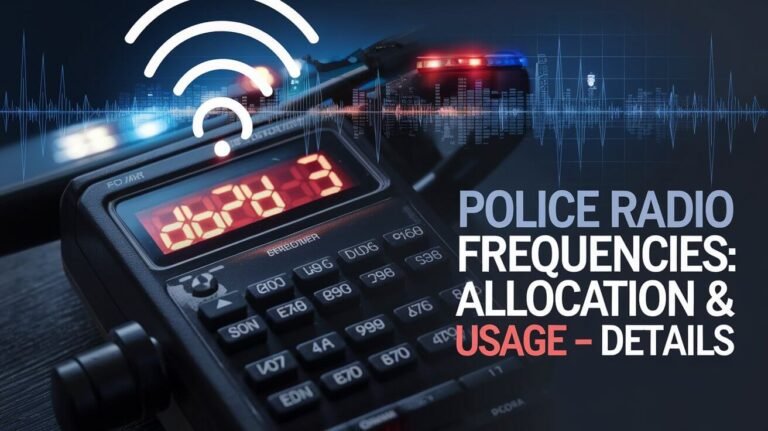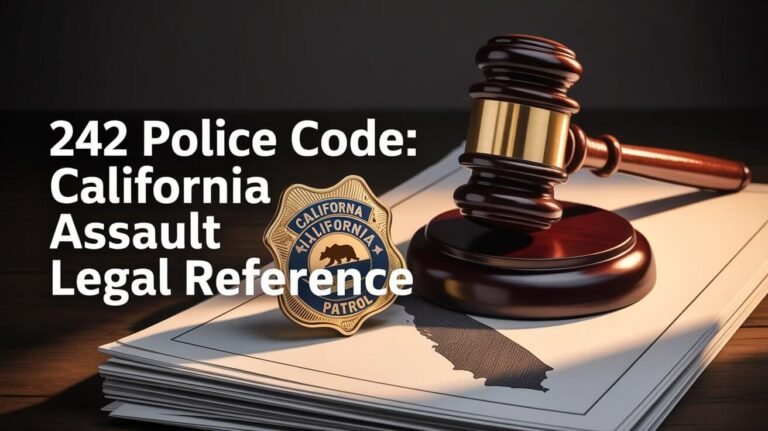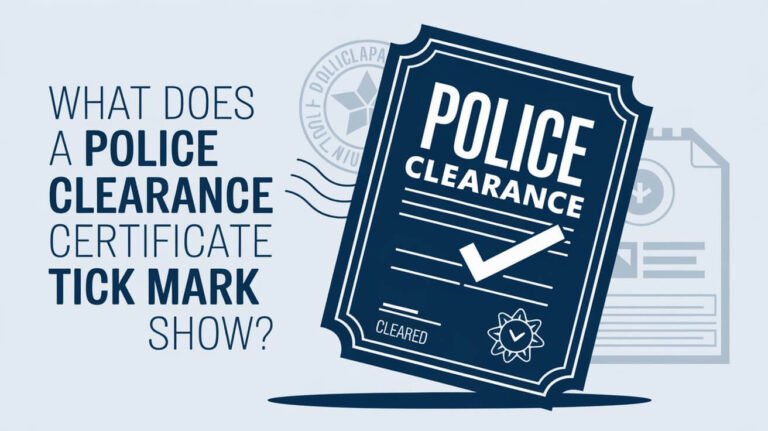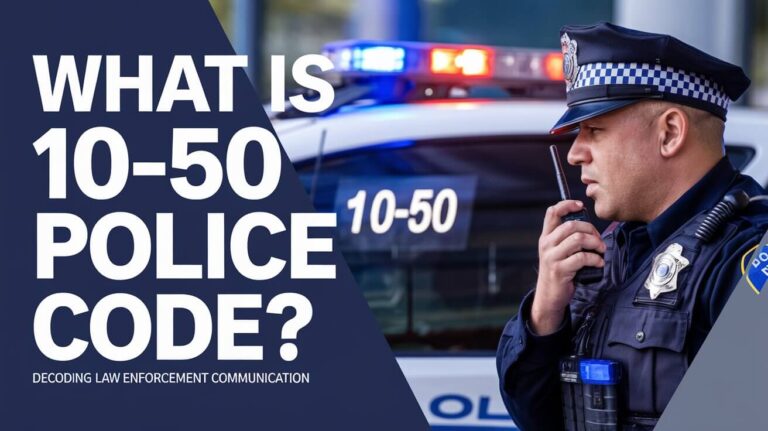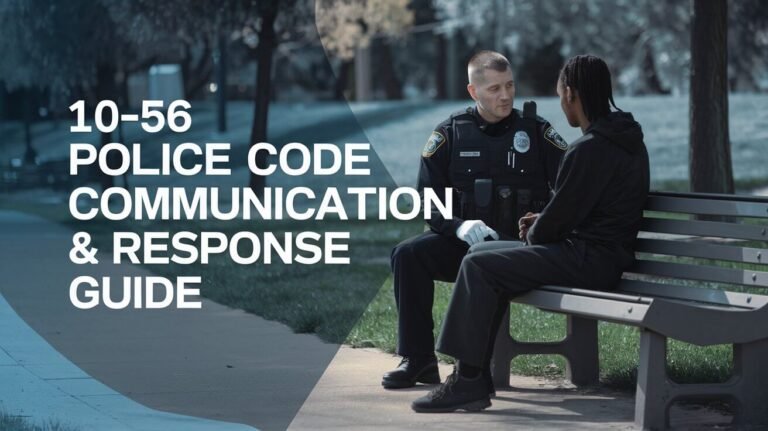How To Get My Car Out Of Police Impound For Free?
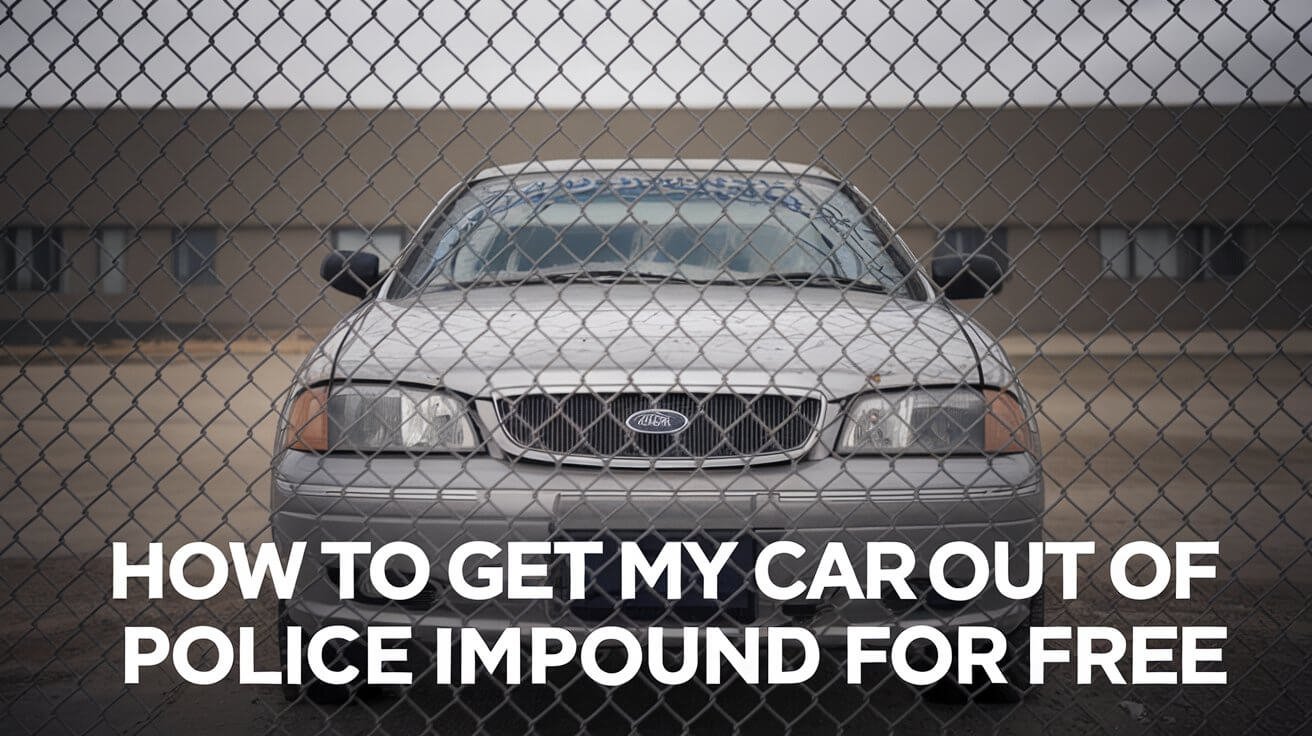
Have you ever had your car taken by the police? If yes, you’re in good company. Many car owners face the challenge of getting their vehicles back from impound lots. But, is it possible to get your car back without the high fees? Let’s dive into some strategies and legal rights that might help you get your car for free.
Common Reasons Your Car Gets Impounded
Cars can end up in impound lots for many reasons. This includes police actions, private property issues, and even if you ask for it. Knowing why can help you avoid the trouble and costs of getting your car back.
Police-Directed Impoundment Scenarios
Police might take your car if you drive recklessly, are under the influence, or lack a driver’s license or insurance. Unpaid parking tickets or other fines can also cause your car to be towed and impounded.
Private Property Impoundment Cases
Businesses or homes can impound your car if it’s parked illegally on their property. This includes parking in restricted or unauthorized areas.
Owner-Requested Impoundment Situations
Sometimes, you might ask to have your car impounded. This could be after an accident or if your car is not working and needs to be towed. It can protect your car from damage or theft.
Impounded vehicles come with fees and charges. You need to pay these to get your free vehicle from impound lot and avoid impound costs. Knowing your rights and the process can make things easier.
Standard Impound Fees and Charges
When your car gets impounded, the costs can pile up fast. These fees include towing, storage, and release charges. Prices vary a lot, from a few hundred to over $700, depending on where you are.
Towing fees differ based on where you live. Private impounds cost between $145 and $377. Police-ordered impounds range from $153 to $412. Extra fees for each mile can be $4 to $8 after the first five miles.
Storage costs also depend on your location. Indoor storage for small cars starts at $34 and goes up to $55 for bigger ones. Outdoor storage is cheaper, from $28 to $48 a day. After 24 hours, you might face an admin fee of up to $250.
| Fee Type | Range |
|---|---|
| Towing and Transport | $145 – $412 |
| Per-Mile Fees | $4.15 – $7.65 |
| Indoor Storage (Daily) | $33.90 – $54.65 |
| Outdoor Storage (Daily) | $27.60 – $48.40 |
| Administrative Fees (After 24 Hours) | Up to $250 |
Getting your car back from an impound lot can be expensive and time-consuming. Knowing the usual fees can help you plan for such situations.
How To Get My Car Out Of Police Impound For Free
Recovering your car from an impound lot can be challenging and costly. But, there are legal ways to get it back without paying the full fees. Let’s look at some options to help you get your car back for free.
Fee Waiver Programs for Stolen Vehicles
If your car was stolen and impounded, some cities offer fee waivers. They know you were a victim of a crime and shouldn’t be charged. To get this help, you need to show proof that your car was stolen and found by the police.
Legal Challenges for Wrongful Impoundment
If your car was wrongly impounded, you can fight it in court. If you can show that the ticket was wrong, you might not have to pay the fees. This is a good option if you can prove the impound was unfair.
Insurance Coverage Options
Check your auto insurance policy for towing and impound coverage. Some policies cover these costs, even if your car was stolen or in an accident. Also, if you live in a state that requires auto insurance and your car was impounded for lack of coverage, your insurer might help reduce or waive the fees.
Locating Your Impounded Vehicle
If your car is impounded, finding it is the first step. It might seem hard, but following a few steps can help. Remember, the sooner you act, the less you’ll pay in fees.
Start by calling the local police or parking authority. If you were there when it got impounded, you got a ticket or paper with the lot’s info. This is your main clue to find your car.
- Call the impound lot with your car’s details, like make, model, and plate number. They’ll check if it’s there and tell you how to get it back.
- If you didn’t get any papers, still call the police. They can tell you where your car is.
After finding your car, you can start getting it back. You’ll need to show some papers, pay any fees, and have the right insurance. Quick action and the right steps can help you get your towed car back without paying and get it out of the impound lot fast.
Required Documentation for Vehicle Release
Recovering your impounded vehicle can be challenging. But knowing what documents you need can help. The exact papers you need might change based on where you live. Still, there are some key things you should have ready to avoid impound costs and release your impounded vehicle.
Essential Paperwork Checklist
- Valid driver’s license
- Current vehicle registration or title
- Proof of insurance coverage
- Documentation to prove ownership, such as a bill of sale or lien release
Proof of Ownership Requirements
You’ll usually need to show you own the vehicle. This might be the title, registration, or a bill of sale. If the vehicle is financed, you’ll also need a lien release or permission from the lender.
Insurance Documentation Needs
Most places require car insurance to release a vehicle. You’ll need to show your current insurance, like an ID card or policy documents. Make sure your insurance meets the state’s minimums to get your vehicle back quickly.
Low-Income Assistance Programs
If you’re struggling with impound fees, there might be help available. Many cities offer fee breaks for those with low income or first-time offenders. Just reach out to your local police or impound lot to see if they have any programs.
When asking for fee cuts, be kind and share your story. Show them proof of your financial struggles. Some places have special programs to help with these fees, so you can get your car back.
- Contact your local authorities to inquire about impound bailout options for low-income individuals
- Prepare relevant financial documents to demonstrate your need for avoiding impound costs
- Explain your circumstances clearly and politely when requesting fee waivers or reductions
- Explore any city-specific assistance programs that could help cover impound-related expenses
Looking into low-income help can make dealing with impounds easier. Each city has its own rules, so it’s worth asking around. You might find the support you need to avoid high fees.
Legal Rights During Vehicle Impoundment
When your car is impounded, knowing your legal rights is key. Impound yards usually hold vehicles for up to 30 days. It’s important to understand the time limits and storage rules to get your car back on time.
Time Limits and Storage Regulations
The time your car is held can vary. It depends on why it was impounded and the state’s laws. Most states hold impounded vehicles for about 30 days.
If your car was involved in a crime or is being used as evidence, it might be held longer. This is until the investigation or legal process is finished.
Impound yards also charge daily storage fees. These fees can add up fast. So, it’s important to get your car back as soon as you can to avoid high costs.
Vehicle Owner Protections
As the car’s owner, you have legal protections. Police must do an inventory search of the vehicle. This is to document its contents for safety and protection. But, these searches must be reasonable and not done in bad faith.
If you think the search was unjustified, you can challenge it legally. Talking to a criminal lawyer who specializes in legal ways to get car from impound and towing company disputes can help. They can guide you through the legal process and protect your rights.
Alternative Payment Solutions
If you can’t pay the high impound fees right away, don’t worry. There are other ways to get your car back. Look into payment help programs and creative financing options. These can help you avoid a big financial hit.
- Look for local community action programs or nonprofits that help with impound fees.
- Ask the impound lot if they can set up a payment plan for you.
- Use credit cards, personal loans, or emergency funds to cover the costs. Then, make a plan to pay it back slowly.
- Try crowdfunding to raise money from friends, family, or community supporters.
- See if your employer can give you a short-term loan to help get your car back.
These alternatives might take some effort, but they can be a big help. By looking into all your options, you can get your car back without a huge financial burden.
| Payment Assistance Programs | Financing Options | Community Resources |
|---|---|---|
| Low-income waiver programs Nonprofit towing assistance Government aid initiatives | Personal loans Credit cards Payday loans (with caution) | Crowdfunding campaigns Employer assistance Community action groups |
State-Specific Impound Regulations
The rules and fees for vehicle impoundment change a lot based on where you are. It’s key to look up the specific rules and fees for your state, city, or town. This helps you understand how to get your car out of the police impound lot. Some places, like California, New Jersey, and Hawaii, have programs for low-income folks to help avoid impoundment because of no insurance.
Local Municipality Guidelines
Many cities and local areas have their own rules for vehicle impoundment. Some might have programs to help with fees or offer different ways to pay. Knowing these local rules can help you get your car back cheaper and more easily.
City-Specific Fee Structures
Impound fees vary a lot from one city to another. You’ll usually pay for towing, storage, a release fee, and a boot fee if needed. These costs can add up to hundreds of dollars. Cities like Sacramento and San Francisco have programs to help lower these fees for those who can’t afford them.
Steps to Prevent Future Impoundment
To avoid the costs and trouble of getting your car back from an impound lot, start by being proactive. Make sure your insurance, vehicle registration, and driver’s license are all up to date. Also, handle any outstanding tickets or violations quickly to avoid getting your car towed.
Driving safely and responsibly is key. Look for affordable auto insurance to keep coverage going without gaps. A clean driving record not only keeps insurance costs down but also lowers the chance of your car being towed.
- Keep insurance, registration, and driver’s license current
- Address tickets and violations promptly
- Drive safely to maintain a clean record
- Explore affordable insurance options to avoid coverage gaps
Being proactive, you can dodge the high costs and trouble of getting your car back from an impound lot. Stay alert and drive responsibly to keep your car on the road and in your hands.
Wrapping Up
Retrieving a car from police impound can be difficult and expensive. But, knowing the steps and looking for options can help cut down expenses. Free retrieval is rare, but understanding your rights and exploring fee waivers can make a difference.
It’s important to keep your vehicle out of trouble by following local laws and avoiding fines. Make sure your car’s documents are in order too. This way, you can avoid the stress and cost of impoundment.
Dealing with a car impound can feel overwhelming. But, with the right info and help, you can get your car back. Stay informed and keep trying, and you’ll get your car back on the road.
Common Questions
What are the common reasons a car gets impounded by the police?
Cars get impounded for many reasons. This includes police actions, private property issues, or if the owner asks. Police might impound a car for reckless driving, DUIs, unpaid fines, or missing documents.
Private property owners might impound cars for illegal parking. Owners might also ask for their cars to be impounded after accidents or if the car won’t start.
How much do standard impound fees and charges typically cost?
Impound fees vary by location. They include towing, storage, and release fees. Costs can be hundreds of dollars.
Fees differ because of agreements between local governments and towing companies. This leads to different prices in different places.
Are there any fee waiver programs or legal challenges to get my car out of the impound lot for free?
Some cities offer fee waivers for stolen cars. But this isn’t true everywhere. You can try to get your car back legally if there was a mistake with a ticket.
Insurance might cover towing and impound fees for stolen or accident cars. If you’re really struggling financially, you might get a fee break in some places.
How do I locate my impounded vehicle?
To find your impounded car, call the local police or parking authority. If you were there when it got impounded, you got a ticket with the lot’s info. Call the lot to check if your car is there and what you need to get it back.
What documentation do I need to retrieve my vehicle from the impound lot?
What you need to get your car back varies by state. You usually need insurance, a driver’s license, and car registration or title. Check with the lot for specific needs. Most places require car insurance to release your vehicle.
Are there any low-income assistance programs to help with impound fees?
Some cities help low-income people or those who’ve never had a car impounded. Call the police or lot to see if they offer help. Be honest about your situation when asking for fee breaks.
What are my legal rights during the vehicle impoundment process?
Impound yards usually hold cars for 30 days. Know your rights about how long you have to get your car back. If you can’t get it, it might be sold or junked to pay fees.
Even if you can’t get your car, you might still owe money on the loan.
What alternative payment solutions are available if I can’t afford the impound fees?
If you can’t pay, look into payment plans or loans. You might also get help from community programs, use credit cards, or ask family and friends for help. Some lots offer payment plans for those who qualify.
How can I prevent my car from being impounded in the future?
To avoid impoundment, keep your insurance, registration, and driver’s license current. Pay tickets on time and drive safely. Look for affordable insurance to keep costs down.
Keeping a clean driving record can also lower your insurance costs.

